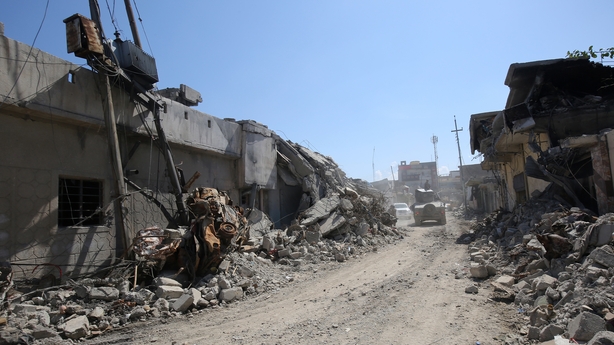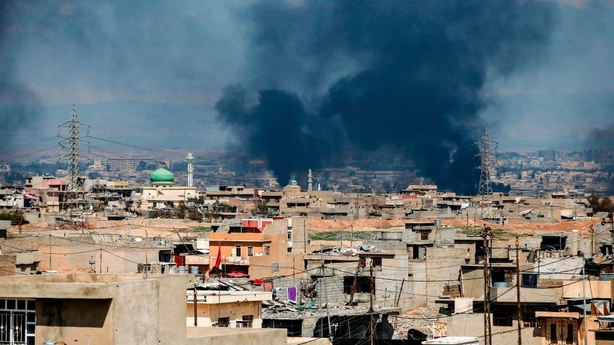The US commander of the anti-IS coalition in Iraq has said coalition forces "probably" played a role in the deaths of numerous civilians during a recent air strike on west Mosul.
Lieutenant General Stephen Townsend said the US had carried out air strikes in that part of Iraq on 17 March.
But he did not rule out the possibility that that the extensive damage was caused by a truck bomb and said it was also possible that the civilians killed had been "forced" to remain in the building by the so-called Islamic State group.
Lt Gen Townsend raised the possibility that so-called Islamic State blew up the building to cast blame on the coalition and "cause a delay in the offensive on Mosul".
Some witnesses said IS had previously forced at least 140 civilians into the house to be used as human shields, and had booby-trapped the building.
A general has been appointed to lead an investigation into the blast in the densely populated area that destroyed buildings and may have killed more than 200 people.

Amnesty International has said the high civilian death toll in Mosul suggested US-led coalition forces had failed to take adequate precautions to prevent civilian deaths.
Iraqi forces have been engaged in house-to-house fighting to dislodge IS fighters from their last stronghold in western Mosul, a crowded warren of narrow streets and buildings in an old part of the city.
The Iraqi push has been backed up with coalition air strikes.
Hundreds of thousands more civilians are still trapped inside west Mosul after Iraqi forces and the US-coalition recaptured the city's east from IS in January.
West Mosul is both smaller and more densely populated than the city's east, meaning this stage of the battle poses a greater danger to civilians than those that came before.


